We Communicate For Happy Children
 Amman: First Regional Symposium on Early Childhood Research amid Crises
Amman: First Regional Symposium on Early Childhood Research amid Crises 
Prepared by the Media and Communication Department at ANECD
12 September 2025
The Arab Network for Early Childhood (ANECD) and Moving Minds Alliance (MMA) conducted in collaboration with the National Council for Family Affairs in Jordan the first regional symposium on early childhood research amid crises: “From scientific evidence to programs and policies in the Arab Region: Research, rights, and regional action for young children in crises”.
Throughout two days, 16-17 August 2025, more than 40 researchers, experts, and specialists in early childhood issues, as well as policymakers and representatives of government institutions and humanitarian and development organizations from 12 Arab and international countries convened in Amman, Jordan. The participants were from Lebanon, Palestine, Jordan, Egypt, Tunisia, Morocco, Oman, Saudi Arabia, the United States, the United Kingdom, the Netherlands, and Bangladesh. On one hand, the diversity of the attendees reflected the convergence of crises and challenges related to research in the early childhood sector. On the other, it indicated the persistent regional and international efforts to network and transform research, evidence, and data into programs and policies.
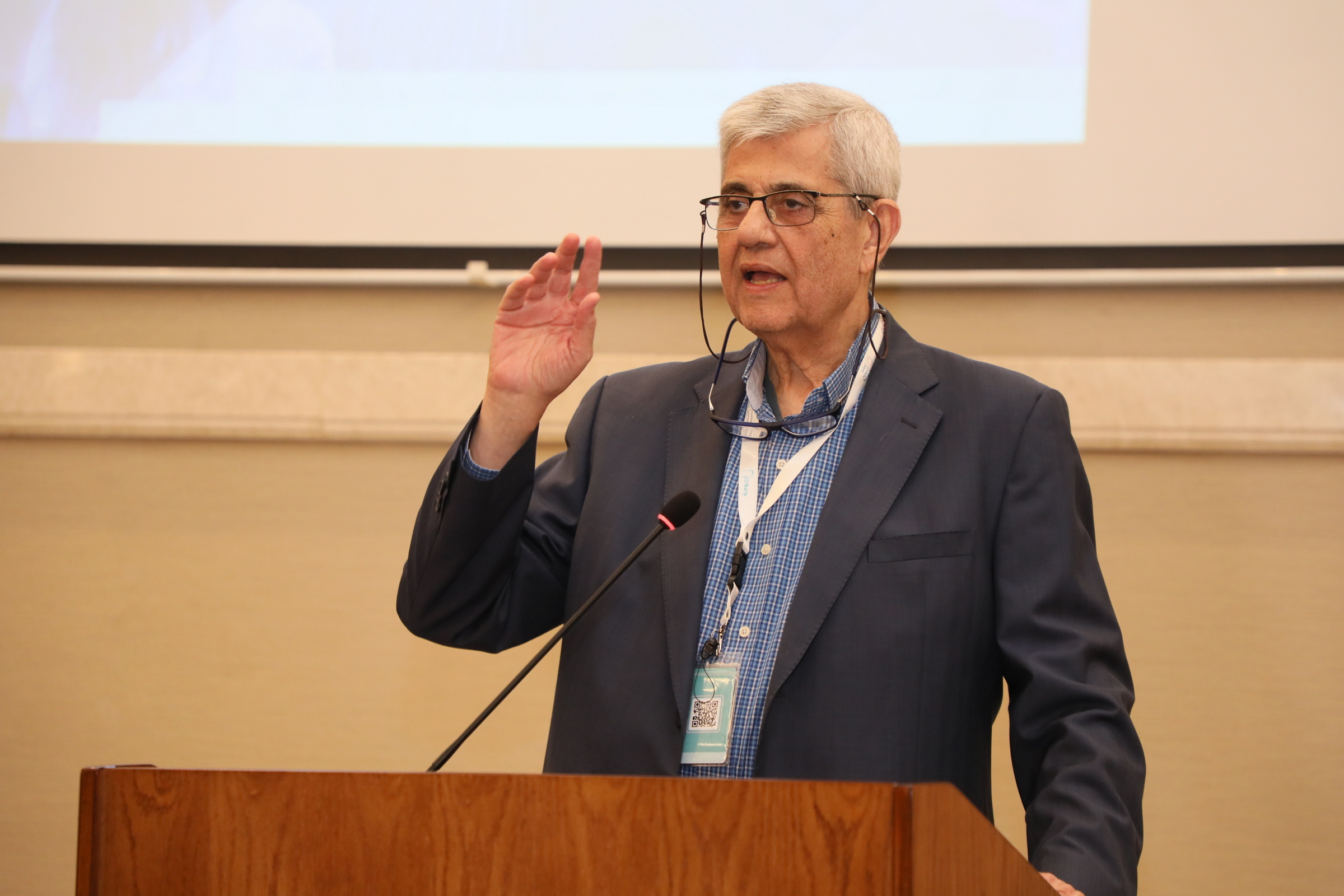
(Dr. Ghassan Issa, ANECD General Coordinator)
Early childhood: Scientific research as a pillar of policies
The symposium was based on the fundamental premise that early childhood development is not a luxury, but rather a necessity and a fundamental right of the child’s rights. At a time when children are the most vulnerable during crises, this stage remains often marginalized and underfunded.
The symposium sought to change this narrative, paving the way for a qualitative shift based on scientific evidence, focusing on the greater challenge of establishing the processes of early childhood research in crises and utilizing them in advocacy efforts to effect meaningful policy change, especially in volatile and rapidly evolving contexts.
The general coordinator of ANECD, Dr. Ghassan Issa, summarized the importance of the symposium theme by stating that “we cannot rely solely on providing services in the ECD sector without research, even during crises. Otherwise, early childhood programs would not be solid.” In his opening remarks, Issa explained that this event is the first of its kind in the Arab region, and it complements the efforts of ANECD and the national networks in establishing the Arab Working Group for Early Childhood Research, connecting researchers in the EC field, and working to produce and exchange knowledge.
In the same context, Dr. Mohammed Al-Meqdadi, Secretary-General of the National Council for Family Affairs, highlighted “the significance of this meeting that stems from its focus on evidence-based scientific research as an essential tool for developing policies, programs, and strategies”. He emphasized that “scientific research is the cornerstone of any successful policy in the field of early childhood”. He also linked the importance of this event aiming at protecting children to the tragic events taking place in Arab countries, especially in Gaza, clarifying that “these events remind us that protecting children is not a luxury but an urgent humanitarian necessity”.
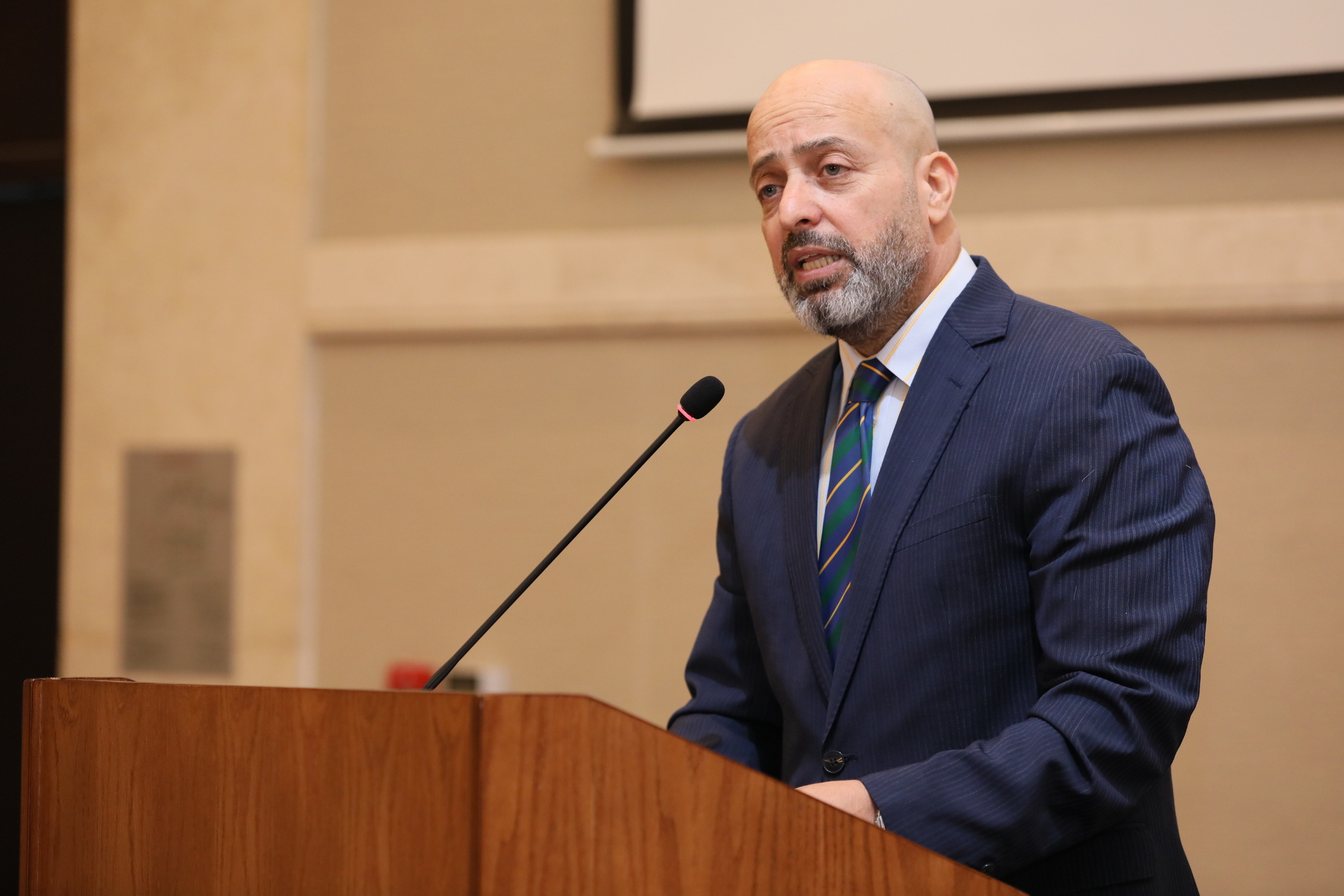
(Dr. Mohammed Al-Meqdadi, Secretary-General of the National Council for Family Affairs)
Symposium topics: Protecting children through knowledge and research
Participants from diverse backgrounds and countries came together with a single goal that is to enhance cooperation in order to bridge the gap between research and practical policies and to develop evidence-based policies and practices that provide every child with the best start in life, noting that these efforts are hindered by several obstacles, most notably:
In order to attain the overall objective, the symposium provided a lively platform for sharing experiences, expertise, and research findings. Discussion focused on two main themes: 1) Child’s Rights that constitute the basis for all ECD work and 2) ECD advocacy, policy impact, and change.
Participants addressed the following topics:
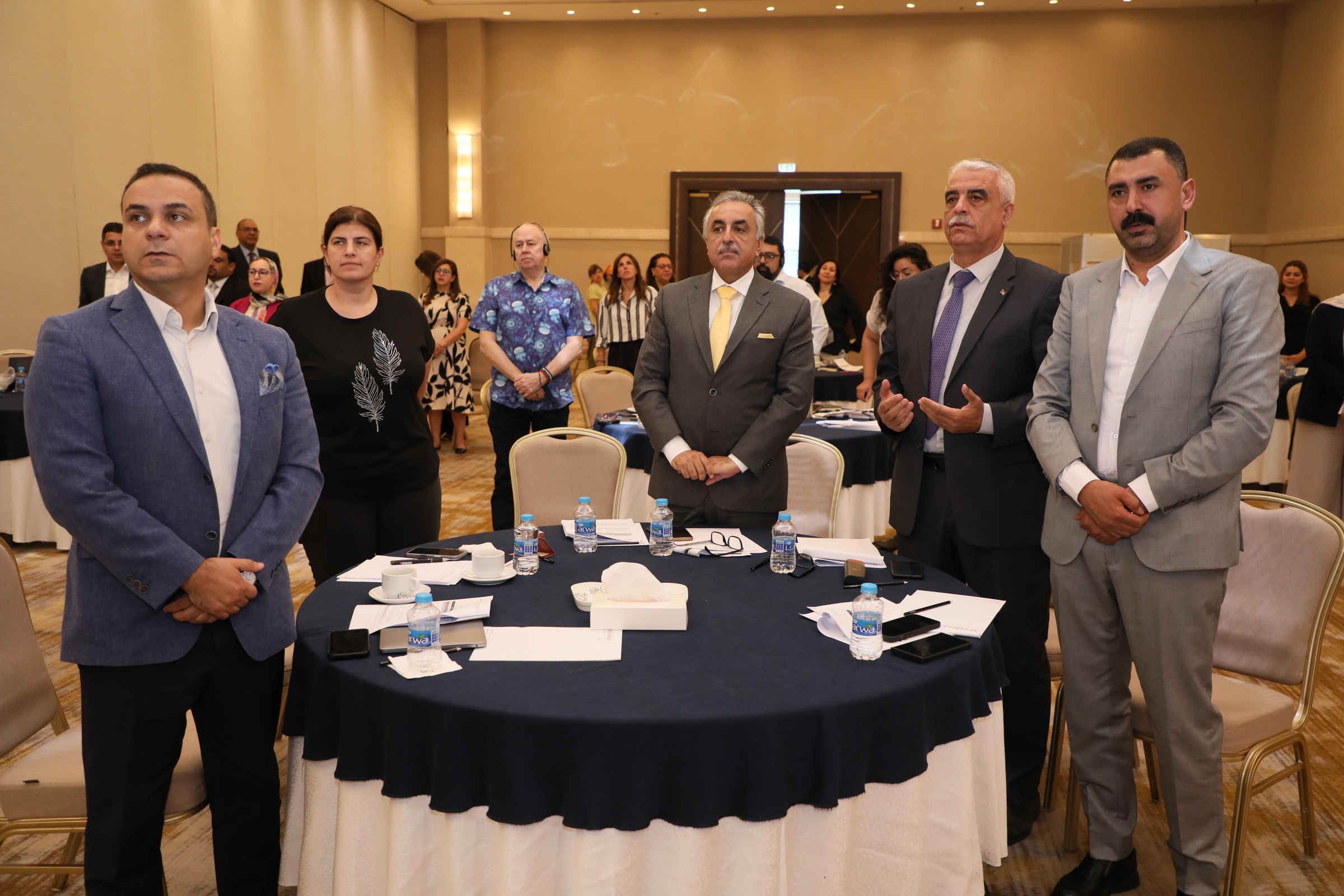
(A minute of silence for the souls of the martyrs, most of whom are children in the Gaza Strip)
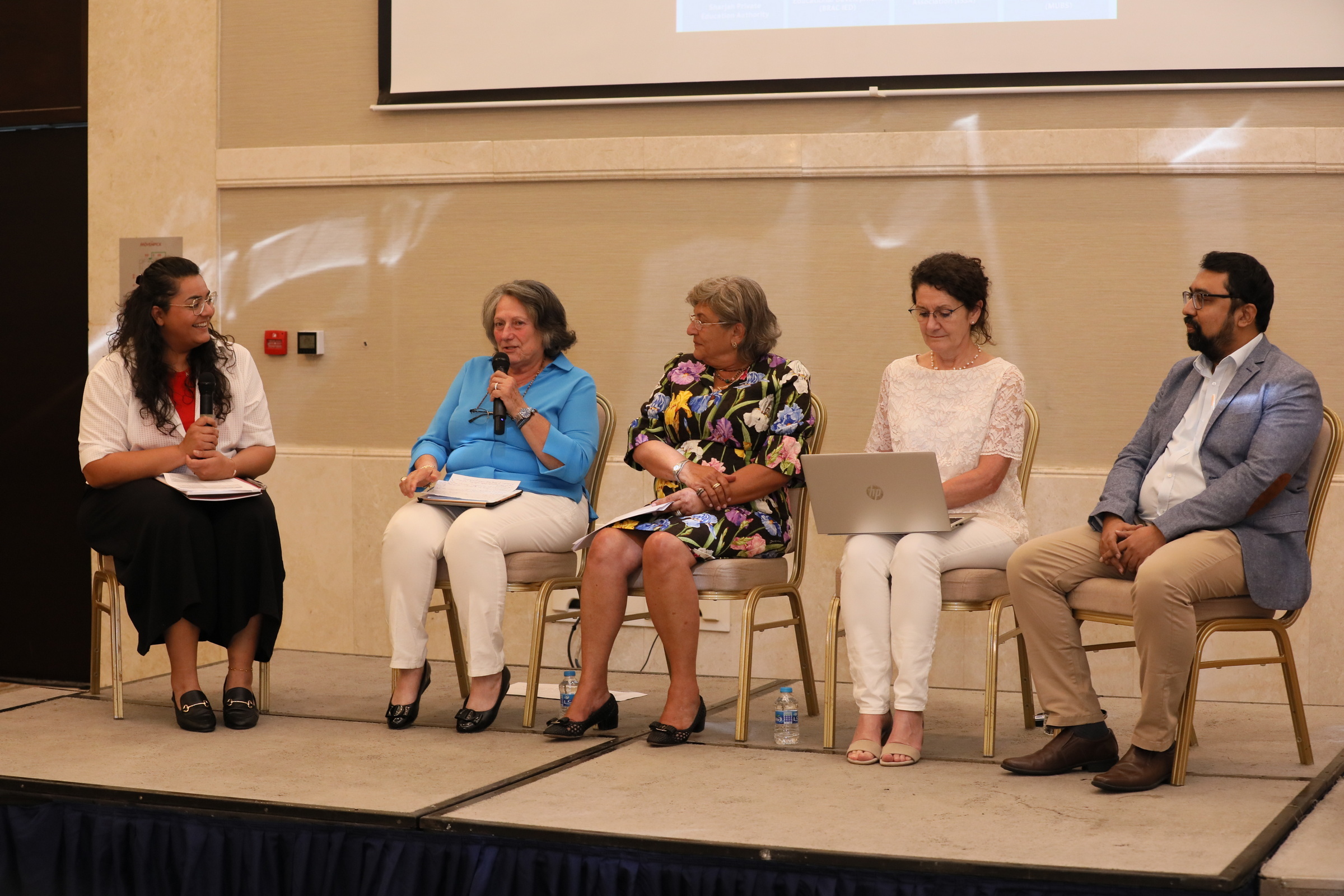
(From the panel discussion during the Symposium on regional and global initiatives in research and knowledge production related to the early childhood sector)
From scientific evidence to policies and programs: Interactive session
Building upon the discussions, research, and studies presented during the sessions, participants held an interactive working session at the end of the symposium entitled “From scientific evidence to policies and programs”. The working groups sought to examine the reality on the ground and identify research gaps, in addition to exploring ways to develop national and regional capacities in the EC sector.
Participants discussed the most prominent challenges hindering the collection of accurate and reliable data, identified urgent research priorities in this field, and reviewed the reasons for the weak use of research findings in policies and programs. The discussions highlighted the importance of linking scientific research to field reality and adapting it to national and regional specificities. They concluded with a set of recommendations aimed at developing research capacities and enhancing coordination among various parties in order to advance the early childhood sector in the Arab countries.
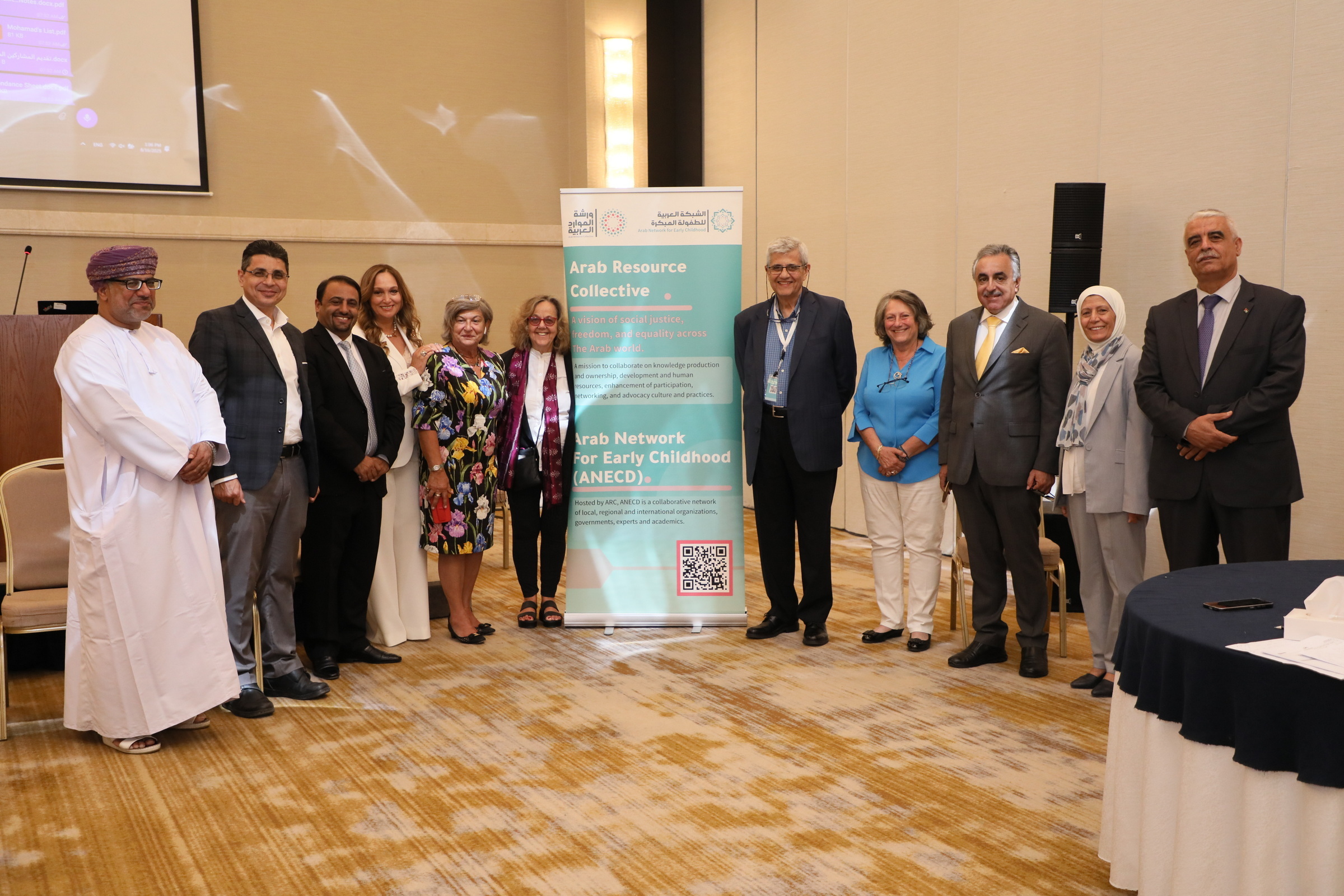
The symposium succeeded in creating a rich space for the following:
All the symposium materials and recordings will soon be available on the ANECD website.
Translated by: Rania Sahili
